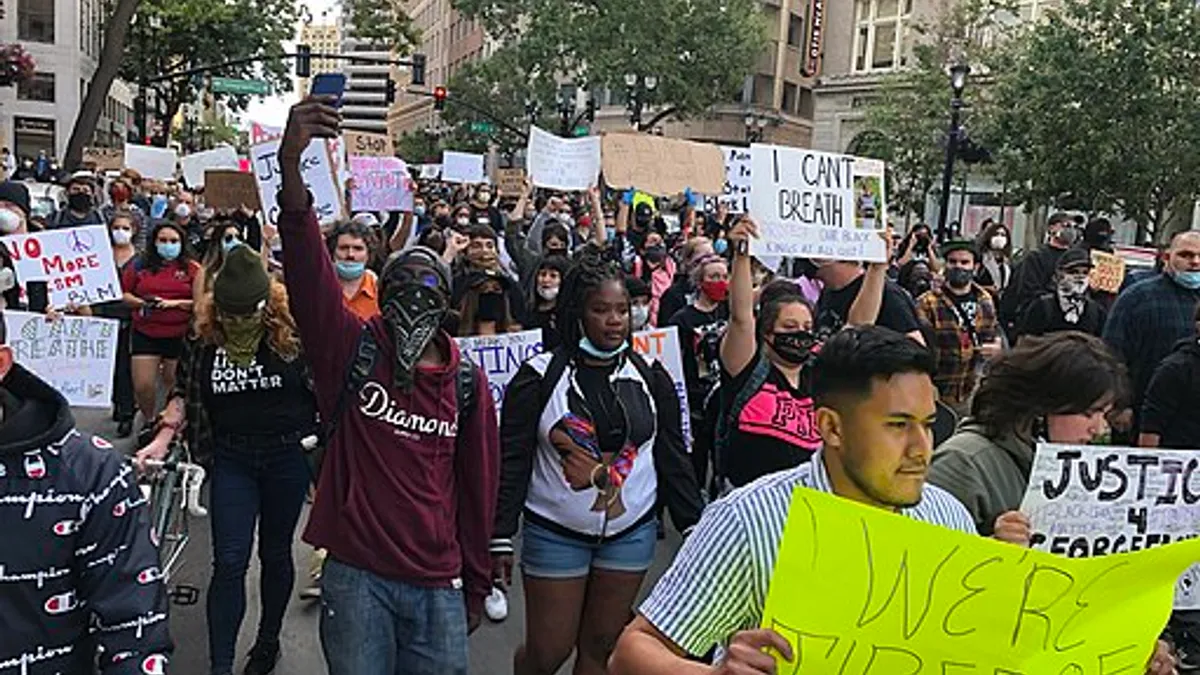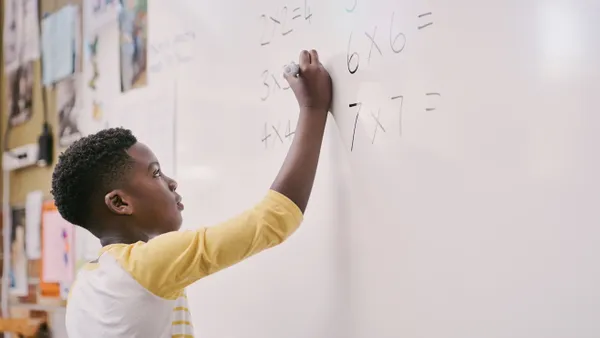Dive Brief:
- Amid ongoing protests sparked by the killing of George Floyd, an unarmed black man, by Minneapolis police, school districts in cities such as Minneapolis and Denver are rethinking the role of officers in schools, and educators are traversing the rocky terrain of leading difficult conversations on systemic racism and police brutality.
- The task of addressing these issues in curriculum is further compounded by the coronavirus pandemic, as school closures prevent teachers and students from being able to have these conversations in person, Chalkbeat reports, noting that it can be more difficult to express feelings and pick up on emotions over video chats.
- Many educators are putting the events in the context of historical events, including Jim Crow laws, the civil rights movement, and prior incidents of police brutality, with an added social-emotional learning approach that focuses on anti-racism guidance for educators and frank, peer-to-peer discussion between students.
Dive Insight:
Navigating sensitive topics in the classroom has never been a particularly easy task, and doing so today is only compounded by the nation's highly partisan political environment. But addressing these issues with all students is critical to producing a better-informed society where citizens are equipped with the knowledge needed to recognize and confront implicit biases in all scenarios.
While understanding the history of systemic racism in the U.S. is a start, the compassion and empathy imparted by SEL are key to help students grow into adults prepared to overcome that cycle and bring about change. Practices must also, however, be culturally relevant to be effective, Ohio State University Professor Donna Y. Ford noted in an article for Diverse: Issues in Higher Education. This will necessitate additional training for teachers, administrators, counselors and other staff in many cases.
A strong foundation of civics education focused on engaging the community, advocating to elected officials, and demonstrating for change is also critical. U.S. Supreme Court Chief Justice John Roberts expressed concern at the end of 2019 that "civics education has fallen by the wayside," and international test results have shown teens lacking proficiency on tasks requiring them to differentiate between fact and opinion. Inconsistent access to civics ed across districts in Rhode Island is also at the heart of a federal class action lawsuit.
As seen with Minneapolis Public Schools' unanimous decision to terminate its contract with the Minneapolis Police Department and Denver's conversation about rethinking the role of officers in schools, administrators are also increasingly recognizing the need to address systemic racism within their own buildings. Recognition in recent years of the school-to-prison pipeline and its impact on black students has resulted in many districts nationwide overhauling exclusionary discipline systems at the heart of these concerns.
This and other commitments to addressing systemic issues within schools themselves, including additional ongoing training for educators, are a critical step in building trust with students of color and engaging them through culturally relevant curriculum that makes tough conversations easier to navigate.














